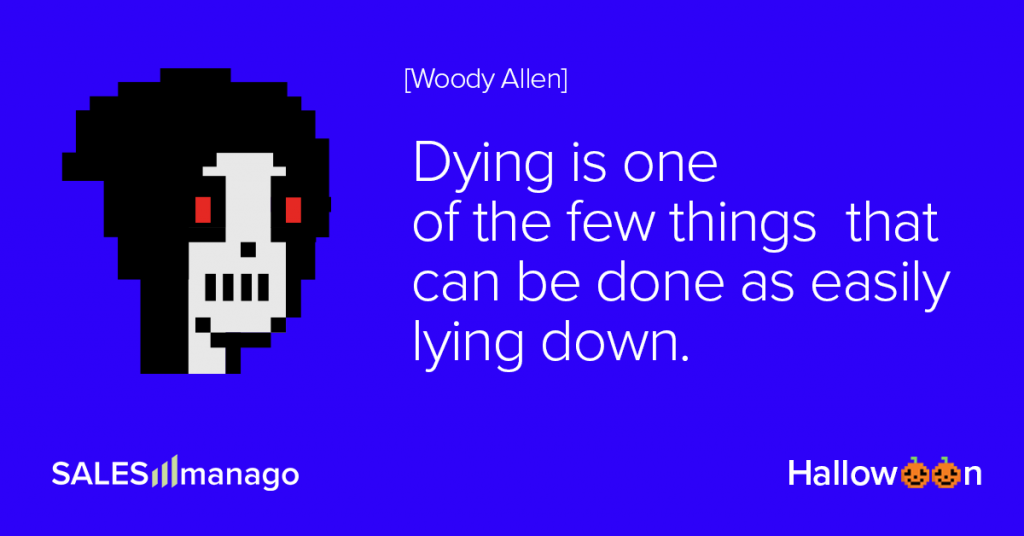
We are used to the notion that the news on plane crashes, war casualties, car crash fatalities or a prospect of imminent demise tend to drive people to a more philosophical mood. They begin to reflect on the fragility of their existence and the futility of all the material aspects of their lives. This is definitely not a good mood for shopping. Or is it?
Would Schopenhauer go shopping in the face of death?
It is unclear if Schopenhauer, facing unavoidable death, would go into a shopping frenzy. Expert opinions are divided in the matter.
In “The Will to Consume: Schopenhauer and Consumer Society” Ryan Gunderson tries to demonstrate, that “(…) the attempt to flee the sufferings of estranged labour through consumption has pushed consumer society into a new web of suffering brought on by a continual development of manufactured desires, creating a minor yet perpetual pain that is best understood in the light of a sociologized and historicized Schopenhauerian philosophy.”. If, like the author, the great philosopher would only see in consumption yet another trap, he would likely avoid it.
On the other hand Rafael Lucian in his article “Consumption as a Lifestyle: A Reflection on the Schopenhauer Perspective” provides us with a somewhat different view. He states that “Consuming extrapolates utilitarianism and hedonism; shopping as a purely rational activity does not complete the set of motivations that drive consumption.”. And he concludes that “reflection leads to understanding that the metaphysics of beauty according to Schopenhauer (2012) presents pragmatic compounds still present that align marketing actions with the search for a better quality of life through aesthetics, excelling the dualistic logic of utilitarian or hedonic consumption and its recompense of mere immediate effect.”. In this perspective, if only for utilitarian reasons, Schopenhauer could see some meaning in spending the last moments of his life on surrounding himself with the objects of beauty.
As for the rest of us … would we go into a shopping frenzy in such a situation? The results of research in this matter from the John Molson School of Business (JMSB) and HEC Montréal are quite surprising.
An unnerving experiment on shopping and death
There were previously studies showing that thoughts of death lead individuals to strongly defend world views that maintain their self-esteem. Thinking about death made people seek a way to cope with mortality. Clinging even more strongly to their beliefs provided them with such a way.
Marketing professors Michel Laroche and Marcelo Nepomuceno wanted to further test this results on two groups:
- Anti-consumers. People who voluntarily resist consumption out of a sense of frugality or desire to live simply.
- Over-consumers. People that basically shop till they drop.
Laroche and Nepomuceno ran two experiments. 503 university students from North America had to first answer questionnaires identifying their tendency to resist consumption. Then they were randomly assigned to one of two groups:
- The Death Thoughts group. The participants were asked to describe their feelings if they were to die soon.
- Control group. The participants were asked to report what they would feel if they were submitted to a painful dental procedure.
After this, the participants were asked to assess their inclination to purchase a series of products. Both groups filled out a survey assessing their willingness to spend money on various purchases. One question, for example, asked them what they would do if their fridge stopped working, with answers ranging from “Definitely buy a new one for $600” on one side of the spectrum to “Definitely fix it for $200” on the other, and room for more ambivalent answers in between.
By comparing the participants in each condition, the researchers were able to identify individual tendencies to increase or reduce consumption due to thoughts of death.
Over-consumers will shop till they drop. Literally
The results,published in The Journal of Consumer Affairs, surprised the researchers.
Laroche and Nepomuceno expected that anti-consumers will resist the consumption even harder. This would support the notion that consumption resistance is an important source of their self-esteem.
As it turned out, anti-consumers were not affected by the death thoughts. This indicates that their self-esteem has no significant source in consumption resistance. It also suggests that the anti-consumers care less about consumption, than over-consumers.
Because the latter showed a significant difference.
Among consumers inclined to over-consume, the researchers found that thinking about death made them even more likely to buy. This points on purchasing and having goods and services as a meaningful source of self-esteem for over-consumers. While thinking about death, they became more inclined to buy, because it made them feel better about themselves.
One could say that anti-consumers could lean more towards Ryan Gunderson, and over-consumers towards Rafael Lucian understanding of the philosophy of Arthur Schopenhauer.
And what does it mean to marketers, when Halloween is coming?
It is worth pointing out that none of the participants of the study was actually dying. It was mere thought, an image of death as a close and unavoidable fact of their life, that sent over-consumers into the shopping frenzy.
As mentioned, the goods participants were asked about were not in any way connected to death or dying. They were everyday use products, strongly connected to life.
For the marketers, the point is rather obvious. The ubiquitous, during Halloween period, death-mood will drive over-consumers to buy even more products completely unrelated to death. A knowledge as ghastly, as it may be useful.
 Follow
Follow
















